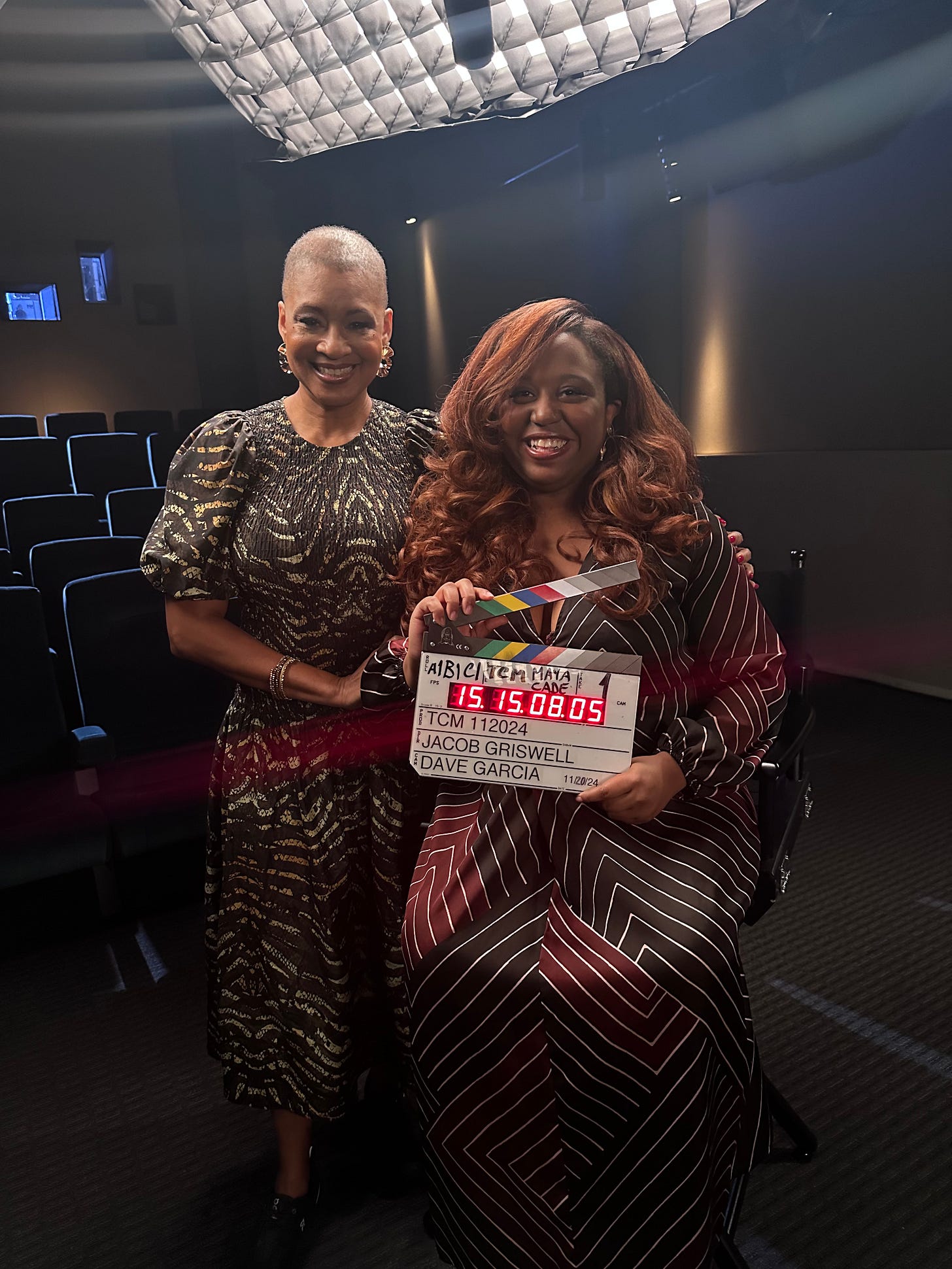5 Films by Black Women to Urgently Watch on Black Film Archive
+Tune in: I’m co-hosting TCM on Thursday March 6 and March 13
I, like many children, grew up believing that life’s possibility could be understood through the prism of television. The television and the cinema were childhood companions and twin pillars that guided me through the infinite wonderland of life’s pleasures, promises, and pursuits. Through my infinite curiosity, I found the terrains of HBO, Turner Classic Movies (TCM), and everything in between. These domains became my formal education for cinema. On HBO I learned about the pleasures of the 80s Summer B-movie and archetypes that constructed the visual language across channels I surfed. But, on TCM I learned about the dames, broads, hijinks, and noirs that illuminated what the very form of cinema could expand to. Stumbling upon “Carmen Jones” (1954) on TCM, perhaps too young but also right on time, solidified for me that cinema could not only be a companion but a guide.

Which is why I am writing to let you all know that tomorrow, March 6, 2025 at 8 p.m. PT / ET, I am proud to be co-hosting for the very first time, followed up with a continuation of the program next Thursday at 8 p.m. The primetime program, Black Women Independents, is a survey of Black women independent filmmakers. The program kicks off with the television debut of “Naked Acts” (1996), the first film I’ve worked on from discovery to restoration. From a childhood fascination with TCM to a dream come true, I owe a sincere thank you to everyone who has supported my work or championed me. The full schedule for viewing is below:1
Black Women Independents - co-hosted by Maya S. Cade on TCM
Thursday March 6
Naked Acts (1996)
8 p.m. (ET/PT)
Alma’s Rainbow (1994)
9:45 p.m. (ET/PT)
I Am Somebody (1970) + A Dream Is What You Wake Up From (1978)
11:30 p.m. (ET/PT)
Thursday March 13
A Powerful Thang (1991)
8 p.m. (ET/PT)
A Different Image (1982)
9:15 p.m. (ET/PT)
Losing Ground (1982)
10:15 p.m. (ET/PT)As I’ve spent the last several months thinking of independent Black women filmmakers and in celebration of Women’s History Month, I wanted to present a companion program for you to view on Black Film Archive. The films below speak to the abundant nature of Black women’s contribution to the form. From Alice Coltrane’s musical vibrations to an experimental wonder that questions the American dream, the films here remind us that the truth, and cinema’s potential to display it, is a many-splendored thing. View all the films on Black Film Archive here.
Eternity’s Pillar (1985) dir. Alice Coltrane Turiyasangitananda
A constant thread in my life has been the sonic callings of Alice Coltrane’s musical vibrations. In Eternity’s Pillar, Coltrane’s late night show on Los Angeles’s KCRW, the harmonic giant expresses the full dynamic range of her offerings: The classically trained pianist meets the transcending recording artist meets the spiritual guide. In Eternity’s Pillar, Coltrane’s aim was to showcase the harmony of the many callings to God and the ways that calling connects us all.
I Like It Like That (1994) dir. Darnell Martin
Darnell Martin’s audacious feature debut, one of the first films by a Black woman director to be produced by a Hollywood studio, is a loud, colorful New York drama that asks ‘How can love survive despite it all?’ Can it survive the weight of family separation due to arrest? Infidelity? Financial burdens? With a lot of heart and humanity, Lisette’s (Luna Lauren Valez) journey reminds us that no matter how far you run, you cannot escape the weight of yourself or the people you love.
MOTV (My Own TV) (1993) dir. Ayoka Chenzira
The American dream is supposed to be simple, right? Two hearts meet, they fall in love, they have a family and the white picket fence. In Ayoka Chenzira’s “MOTV (My Own TV)” the dream is given complexity as the couple’s inability to have a child and move beyond their financial circumstances begins to make the dream feel like entrapment. With Ayoka Chenzira’s tenderhearted hands and experimentation with form, this intercultural vision of the American dream of loving moves from fantasy to reality.
Shipley Street (1981) dir. Jacqueline Fraizer
Educational attainment has always been used as a way to level up economically. In Jacqueline Fraizer’s “Shipley St.,” a Black school girl is sent to an all-white Catholic school with her family’s hope for more. When she arrives, Lana Wilson (Leslie Smith) is confronted with the present reality of being continuously punished with frozen looks from her classmates, harsh discipline from administrators, and the tolls of everyday racism. Fraizer’s film is a forceful display on the ways racism shapes white institutions and the troubles Black children of all ages must carry.
Call Waiting (1997) dir. Lorna Simpson
In a literal game of telephone, Lorna Simpson paints a picture of the complexities of human relation as lovers, friends, and acquaintances are misunderstood in various points of intimate connection.
View the full list on Black Film Archive here.
TCM has TCM West and East, the showtimes are accurate on the West and East coast. Central time is an hour before the ET time listed.








Maya, thanks again for more stellar recommendations! I subscribe to Max. Will your program and/or the featured films be available via Max's TCM hub?
Congrats Brilliant Maya!!! I don’t believe I have TCM. I’ll spend the weekend trying to figure out how to watch you!
Two comments:
1.) I don’t think the write-up for “I Like It Like That” is correct. I love that film.
2.) I had no idea Alice Coltrane had a television series!!! And I considered myself a fan! “Govinda Jai Jai” is my favorite song of hers. It’s magic.
In pride,
Joshua